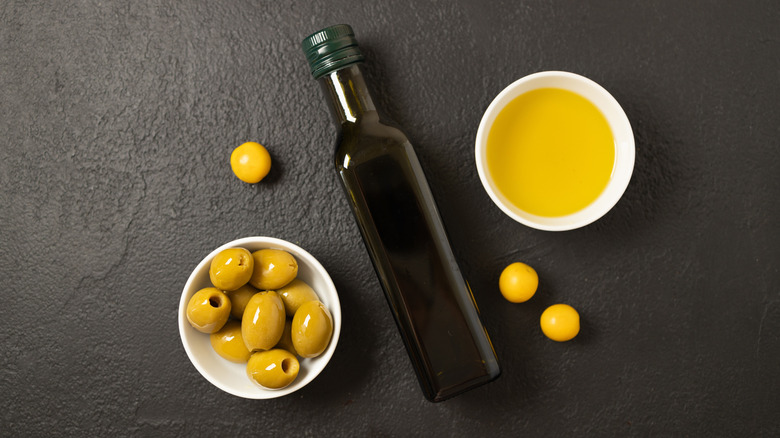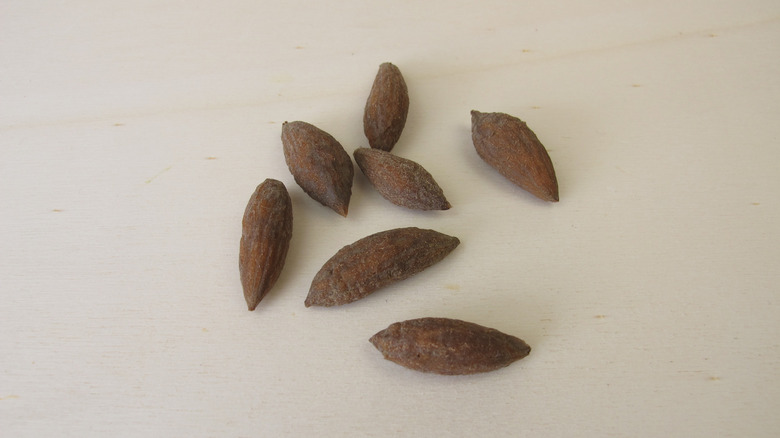You Should Definitely Be Adding Olive Pits To Your Olive Oil Bottles – And Here's Why
Olive oil has been big in the U.S. for decades now, so much so that you can just straight-up bring olive oil to a party instead of wine and no one would bat an eye. Even infused olive oils have their place in any pantry, and though stuff like truffle oil screams 2005, one thing I'd never considered before was adding olive pits to my olive oil jars. Yes, that's right: you can add your unused olive pits to your olive oil.
Why would you do this? You'd do it for one reason: flavor. This is a particularly neat little life hack, especially if you buy olives by the pound at specialty stores. The pits from the olives add depth to olive oil: think an intense fruitiness and maybe even a slightly more bitter edge. It can transform a totally bland bulk olive oil into something a little more olive-y. Hopefully, if you follow our neat little guide, you can get the best olive oil bang for your buck. Just don't expect miracles; it can't magically transform super cheap olive oil into Michelin star territory. And fair warning, it does shorten the bottle's lifespan a little. So be sure to use the oil up quickly!
The surprising uses for olive pits don't stop there
It's important to mention that olive pits aren't just flavor enhancers. They're being studied extensively for their unique properties. While this is a food website, it's interesting to note that olive pits are amazing biofuels. They can be transformed into briquettes and burn efficiently and cleanly, partly because they're so high in cellulose and lignin. They can also be processed for use in place of microplastics.
One of the weirdest uses is also the most food-related. Olive pits can actually be ground up into powder and flour. They can be used to make animal feed, replacing certain ingredients like bone meal, because it's such a good natural thickener. Uhh, delicious. While "olive pit flour" might never become the new almond flour, it does have certain properties suitable for culinary use. One study was done in an attempt to show that, when using olive pit flour, you can actually dramatically increase fiber content and antioxidative value of cookies, or biscuits if you're not American. Though, considering cookies are mostly sugar and flour, that's probably not hard to do. The study found that you can replace up to 15% of your traditional wheat flour with olive pit flour, without any noticeable issues. Is the future olive pits? Probably not, but it's amazing to know these little pits are more complex than they appear!

